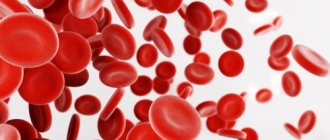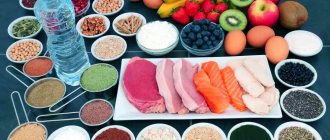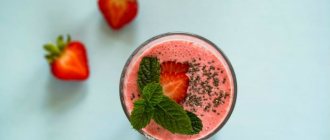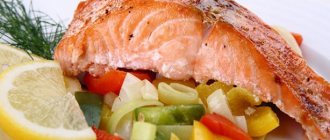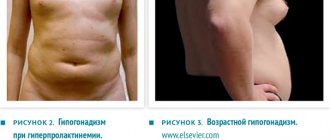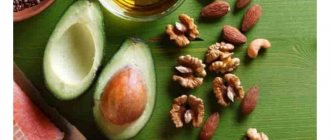What is cholesterol and its role in the body
In addition to fats (lipids), the body also contains fat-like substances (lipoids).
Lipoids include phospholipids, glycolipids and steroids, which are essential components of all biological membranes of the body (cell membranes). The membranes are 60% proteins and 40% lipids. Cholesterol (or cholesterol) also belongs to the steroid structure lipoids. Thus, without cholesterol it is impossible for cells to exist as independent entities.
Cholesterol is a precursor to:
- bile acids (necessary for the emulsification of dietary fats and normal digestion);
- steroid hormones (adrenal cortex, male and female sex hormones);
- vitamin D (formed from cholesterol only under the influence of sunlight; without this vitamin, hematopoiesis and bone tissue formation are impossible).
Especially a lot of cholesterol is localized in brain cells.
Where does cholesterol come from?
Due to the special importance of this substance for the normal functioning of the body, nature did not rely on its accidental intake from food, but worked out the mechanism for producing cholesterol in the liver. At the same time, it also comes from food. Depending on the cholesterol received from the outside, the liver adjusts the amount of the produced organic compound to the current needs of the body, maintaining the required level in the bloodstream, from where, as needed, the substance is supplied to the construction of membranes. Thus, a person's ability to regulate blood cholesterol levels by choosing a special diet is minimal.
The human body contains about 140 g of cholesterol, of which about 1.2 g is consumed per day. To maintain balance, the same amount must come from food and be synthesized in the body. This is what happens - 0.4 g of cholesterol comes from food, and the liver is left to synthesize the missing 0.8 g.
Good and bad cholesterol
If you do an analysis for total cholesterol, then its optimal level should not be higher than 5.2 mmol/l. With a more thorough blood test, an organic compound of high (which is usually called good) and low (called bad) density is determined separately. To understand what is meant by these types of cholesterol, you must first understand how fats are transported in the human body.
Fatty acids, into which dietary fats are broken down in the intestines, are carried by special particles - chylomicrons, and cholesterol is transported by low-density lipoproteins (LDL) and high-density lipoproteins (HDL). LDL carries and deposits the substance in the walls of arteries, and HDL moves cholesterol to the liver and transfers it to other particles. Hence the definition of these two types of lipoproteins as “bad” and “good”.
Cholesterol is the cause of atherosclerosis
High cholesterol levels by themselves are not accompanied by any symptoms. Symptoms occur in atherosclerosis, which is a consequence of excess organic matter.
With atherosclerotic disease, the vessels of the heart, brain and other organs are affected with the formation of atherosclerotic plaques in the arteries that block their lumen. In this case, women may experience disturbances in the blood supply to organs and the development of the following complications:
- headaches;
- dizziness;
- myocardial infarction;
- cerebral stroke;
- thrombosis;
- necrosis of toes.
The composition of atherosclerotic plaques includes cholesterol, hence its role in the development of these lesions is clear - cholesterol (namely LDL) is a risk factor for atherosclerosis. The high content of HDL reduces and prevents the substance from sticking to the walls of blood vessels.
A high concentration of cholesterol over a long period can lead to the formation of serious pathologies (coronary heart disorders, cerebral stroke, kidney and liver failure, etc.).
How to reduce cholesterol?
Avoid or limit your use to a minimum:
- Fried, salty and fatty foods. Pay special attention to reducing the consumption of baked goods, milk, fatty cheese, cottage cheese and butter, as well as chocolate and sweets.
- Various semi-finished products (sausages, dumplings, etc.) It is better to replace these products with fresh, baked, stewed, boiled vegetables and delicious fruits.
- Meat products high in fat. Complete ban on kebabs and barbecues! Restrictions on the consumption of dishes made from lamb, liver, brains, bacon and liver. It is allowed to introduce poultry, veal and beef into the diet (normally about five hundred grams per week). Meals should be prepared without fat. Bake, stew and boil meat. All fat and skin are removed from poultry meat before cooking. You can only eat steamed cutlets. Meatballs – baked.
- A large amount of lard and products made from it. A small piece is allowed several times a week.
- Fish (smoked and salted) and crab sticks. Canned food and salted caviar are prohibited. You can eat small amounts of squid, lean white and red fish (bake it in foil). This way, you will get rid of fat that your body does not need.
On the subject: Diet and nutrition during menopause Many types of red fish, such as trout or salmon, are good for naturally lowering cholesterol and stabilizing lipid metabolism. Halibut, sardines and herring are allowed. Herring - only unsalted. Don't buy frozen fish. If you suffer from atherosclerosis, you can introduce low-fat pollock, cod, and sole into your diet, as the least fatty varieties. The consumption rate is about two hundred grams per day and no more than three days a week.
- You can eat chicken eggs 1-2 times a week, but only one egg at a time. In this sense, quail is much healthier; they can be consumed daily (one per day). Naturally, these are not scrambled eggs, but boiled and raw eggs.
- Orekhov. This product is considered generally beneficial for the body, but with strict consideration of all components of fat in the daily diet. Walnuts or almonds in small quantities can be added to oatmeal. It is best to avoid peanuts. You can add some roasted pumpkin, sunflower and sesame seeds to your diet.
Cholesterol-lowering products available to everyone are:
- citrus;
- green tea;
- Bulgarian pepper;
- pistachios (not salted);
- bran (oat);
- carrot.
Other products - in the picture
Harm of alcoholic beverages
Alcohol breaks down fats, and yet it does not help lower cholesterol levels. How is this possible? Alcoholic drinks are processed by the liver and cause great harm to it. This important organ is forced to neutralize the harmful effects of alcohol, which literally attacks the liver, destroying some of its cells. The second blow is dealt to the kidneys, which are forced to work in emergency mode. They need to process alcohol, a poison for the body, as quickly as possible. The products of its processing are excreted along with the liquid, causing dehydration and intoxication. A drinker's blood vessels are subject to constant overload due to their regular expansion and contraction. The end result is a decrease in blood flow capacity due to decreased vascular elasticity. They are becoming more and more fragile. The human body itself produces a certain dose of alcohol. Its amount is about ten milliliters per day and is called “endogenous alcohol.” Its dose helps lower cholesterol. Drinking additional portions of alcohol in the form of alcoholic beverages leads to a decrease in high-density lipoproteins (that is, cholesterol that is beneficial for the body). Thus, giving up strong alcohol helps normalize blood cholesterol. The exception is small portions of red wine. But it can only be used if recommended by a doctor.
How to reduce blood cholesterol to normal levels with a healthy diet
The principle of proper nutrition is simple - a ban on the consumption of harmful foods and their gradual replacement with healthy dishes. The body needs a sufficient amount of protein. The following are good options for replenishing it:
- poultry and lean meat dishes;
- fish and products made from it.
The most acceptable option for eating them is lunch. Rules for fat consumption:
- Replace all animal fat with vegetable oil.
- Add a small amount of oil to vegetable salad, but do not use it for frying.
- Consume fish oil. It contains many beneficial substances, including those that help neutralize excess cholesterol.
How to reduce blood cholesterol?
- Improve your diet with greens, fruits, berries and vegetables. These foods should be consumed regularly, every day. They help get rid of excess cholesterol and supply the human body with the entire necessary range of vitamins. Gradually increase their daily intake (in different forms) to one kilogram.
- Cereals rich in fiber and minerals are best consumed in the morning for optimal absorption by the body. Buy only buckwheat or rye bread (with bran). It is best to avoid white bread completely.
Important! For the normal functioning of the body to combat the formation of plaques on the walls of blood vessels, vitamins C and E, trace elements, calcium and niacin are required. Eat foods high in them.
What foods reduce blood cholesterol? Natural vegetable oils
Competent measures including the inclusion of certain oils in the menu helps stabilize cholesterol levels to normal within just a few months. Preference should be given to:
- olive;
- flax;
- amaranth oil.
This product should become a must-have food item! It is rich in healthy fatty acids and omega-3s that are not found in meat. Fatty acids are involved in the healing of cells and blood vessels (especially useful in the presence of atherosclerosis), improve the oxidation process and metabolism. Note. Buy a specific type of oil on the recommendation of a doctor in a specialty store, supermarket or pharmacy, but not in the market or kiosks.
Beneficial properties of olive oil
It is one of the leaders in popularity in most countries of the world. This is a tasty and nutritious product with a large list of useful substances. Olive oil helps strengthen the cardiovascular system. A large amount of monounsaturated and polyunsaturated fats in it is a beneficial factor in lowering cholesterol. The fats in olive oil (first cold pressed) are quickly and well absorbed by the body, which is very important for people who are obese. Good quality oil does not have a negative effect on the functioning of the kidneys and liver, and does not cause negative side effects (when consumed in reasonable doses). List of other beneficial properties of olive oil:
- Helps eliminate the inflammatory process in the body.
- Prevention of heart and vascular diseases.
- Elimination of a number of different complications from existing pathologies (especially if the patient has atherosclerosis).
- Participation in the absorption of calcium and other useful minerals.
- Restoration of the body in the presence of coronary disease (oil improves the oxidation process and helps the regeneration of tissue cells).
- Strengthening the muscular system.
- Improving heart function.
- Increasing the elasticity of blood vessels.
If taken correctly, visible positive results can be expected within three to four months. The approximate daily requirement of olive oil is 50 grams. The dose depends on many factors. These are age, weight, individual tolerance, etc. It is allowed to add to porridge, soup, salad and any other dishes (to taste). Helpful advice. Start your working day with a piece of black bread sprinkled with butter. This is delicious!
Unique properties of amaranth oil
Amaranth or shiritsa is called the bread of ancestors. A beautiful herbaceous plant with small flowers - a storehouse of amino acids. The amount of healthy fatty acids in it reaches seventy percent. Add to this a whole list of vitamins, minerals and antioxidants, and you will see a powerful synergy of beneficial effects (the plant contains squalene, vitamin E, and tocopherol). Squalene is essential for cell functioning. Amaranth oil is eight percent squalene (the highest among all other oils). The product successfully helps reduce the concentration of excess cholesterol. Vitamin E is necessary for the restoration of vessel walls, especially in the presence of serious vascular pathologies. Its content in amaranth oil is about two percent (significantly more than, for example, in sunflower oil). Thanks to the substances contained in amaranth oil:
- The elasticity of blood vessels increases significantly.
- Heart function improves.
It is also a valuable cosmetic product that has a beneficial effect on the condition of the skin and hair. Amaranth oil is drunk in its pure form or consumed with salads, and is also used to treat the skin and hair.
How to drink amaranth oil correctly? How to quickly reduce cholesterol?
The best time to take is in the morning and before bed. Some people cannot drink it neat. There is a way out for them as an additive to vegetable dishes and cereals. Already the first dose leads to an increase in oxygen levels in cells (an effect similar to forest walks). To increase results, mix the oil with foods containing a lot of fiber. Consistent intake leads to improvement of the whole body. This is a quick way to reduce excess cholesterol.
How to reduce blood cholesterol in women. Flax seed oil
Flaxseed oil is an ideal product, especially for women. In addition to lowering cholesterol, it stabilizes hormonal levels and is recommended for all representatives of the fair sex. High-quality oil retains many water-soluble and fat-soluble vitamins, as well as saturated and polyunsaturated fatty acids. The human body is not able to synthesize these acids on its own. He gets them from food.
Vegan oil mill
It has become popular among people who, for some reason, have abandoned traditional foods (meat and fish). Properties of flax oil The product reduces cholesterol, strengthens blood vessels and improves their elasticity, stabilizes the functioning of the heart and liver. This is an effective preventive method that reduces the risks of stroke and heart attack, as well as an affordable method of improving health in general. They use only high-quality oil from a reputable manufacturer. When consuming or purchasing, pay attention to the storage conditions and expiration dates! An expired product will not only be of no benefit, but can also be dangerous.
Method of administration
The optimal time to take it is morning. Dosage – no more than one tablespoon (per day). You can eat it with rye bread, season it with a wide variety of salads, add it to fermented milk products, etc. It is not recommended to fry it! After several months of regular use, a positive result is already noticeable.
The benefits and harms of sunflower oil
Not a single natural vegetable oil contains cholesterol (or its amount is negligible). However, you can often hear recommendations about replacing sunflower oil with other vegetable oils. The only harm of sunflower oil is that in most cases it is used for frying. This method of processing food leads to the destruction of many beneficial substances, including vitamins. In addition, sunflower oil is the most popular product used in preparing fast food dishes. In cafes and fast food restaurants they rarely change it and fry it in the same place for months. As a result, a person receives a large concentration of carcinogens that are dangerous to the body, causing cancer and many other pathologies. High-quality (unrefined) sunflower oil is healthy, like many other vegetable oils. It can be included in a healthy diet.
Causes of high blood cholesterol
The concentration of the substance in the body is influenced by the levels of thyroid hormones and estrogen, as well as the cholesterol content in the foods consumed.
Monounsaturated oleic acid has virtually no effect on cholesterol levels; its effect is comparable to that of other fatty acids. When saturated animal fats are consumed in food, the level of the organic compound in the bloodstream increases. They are found in large quantities in the following products of animal origin: butter; beef, lamb, pork fat; cocoa bean butter.
The degree to which cholesterol levels increase varies from person to person. The role of genetic factors cannot be ruled out.
An unhealthy lifestyle, as well as some diseases and lifestyle features, lead to increased cholesterol levels in women:
- smoking;
- alcohol abuse;
- low physical activity;
- pregnancy;
- menopause;
- diabetes.
Cholesterol levels are increased by trans isomers of monounsaturated fatty acids.
What is cholesterol?
Cholesterol is a fat-like substance that is vital for humans. It is part of the membranes (membranes) of all cells in the body. There is a lot of cholesterol in nervous tissue; many hormones are formed from cholesterol.
Cholesterol is formed in the human body, mainly in the liver. But humans also consume it with food, and often in fairly large quantities. The main source of this cholesterol is fatty animal products. If there are a lot of such foods in the diet, then the cholesterol level in the blood increases, and it turns from a necessary friend for the body into a mortal enemy.
What are lipoproteins?
Not all blood cholesterol is equally dangerous: sometimes they talk about “good” and “bad” cholesterol. As a chemical substance, cholesterol is all the same, it is simply found in the blood in different complexes with other fatty and protein substances - they are called lipoproteins. Low-density lipoproteins carry cholesterol in the blood from the liver to peripheral tissues, promoting its deposition in tissues. If too many of these particles are formed or their breakdown is impaired, then atherosclerotic plaques begin to grow in the vascular wall, narrowing the lumen of blood vessels. Therefore, low-density lipoproteins can be called “bad”.
Atherosclerotic plaques themselves are different. The most dangerous plaques are malignant, with a large cholesterol core and a thin cap of connective tissue. Such a cap is easily torn, the plaque opens like an abscess into the lumen of the vessel. In response to this, the body tries to close the resulting damage with a blood clot. Often the thrombus cannot stop growing and closes, like a plug, the entire lumen of the vessel. Blood flow stops, organ tissue dies without oxygen and nutrients. If this happens in the heart, a myocardial infarction develops; if it happens in the brain, a cerebral stroke occurs. But there are also other “good” high-density lipoproteins in the blood. They capture and remove cholesterol from where it accumulates in the wall of blood vessels. By “cleansing” blood vessels of excess cholesterol, high-density lipoproteins prevent the formation of malignant plaques. The higher the level of low-density lipoprotein cholesterol (cholesterol in the “bad” complexes) in the blood and the lower the level of high-density lipoprotein cholesterol (cholesterol in the “good” complexes), the faster atherosclerosis will develop.
By monitoring hundreds of thousands of people over decades, factors have been identified that greatly increase the likelihood of developing atherosclerosis, heart attack and stroke . They are called risk factors.
The most dangerous risk factors for atherosclerosis (and therefore heart attack and stroke) are high blood cholesterol, high blood pressure and smoking. These are followed by obesity and diabetes mellitus . The effect of one factor enhances the effect of the other, so their combination is especially dangerous. However, if you reduce the level of each risk factor, for example, lower cholesterol levels in the blood, blood pressure, quit smoking, lose excess weight , then the overall likelihood of developing angina, heart attack and stroke will decrease, and the development of atherosclerosis will slow down. This is especially true for lowering blood cholesterol levels.
Why is high cholesterol dangerous?
Cardiologists around the world are of the opinion that every person over 20 years of age should know their cholesterol level, i.e. do the necessary blood test. A detailed blood test for cholesterol is called a lipid profile. If cholesterol is elevated, it is dangerous as a factor contributing to the development of atherosclerosis and severe cardiovascular diseases.
Blood cholesterol levels can be reduced . To do this, you need to change your lifestyle: move more, stop smoking, improve your diet.
The basis of all cholesterol-lowering diets is to reduce the consumption of animal fats (fatty meat, eggs, offal, butter, fatty dairy products, fatty cheeses, baked goods, etc.). Replace most animal fats with vegetable oils: sunflower, olive, corn. From margarines, choose only soft varieties (in jars, not in packs). In moderate (limited) quantities, dairy products with reduced fat content, low-fat cheeses (no more than 30% fat), lean meat, baked goods with vegetable fats or soft margarines, fried fish, and potatoes fried only with vegetable fats are allowed.
Eggs are allowed to be consumed only boiled and no more than two per week.
More often use foods with reduced fat and cholesterol in your diet: wholemeal bread, any cereals, pasta, low-fat dairy products, all kinds of vegetable dishes and fruits.
Among meat products, you should prefer chicken, turkey, and veal. Remove fat and skin from poultry before cooking. Increase your consumption of fish, especially sea fish (for example, two fish days a week or one fish dish every day).
Prefer desserts without fat, without cream and sugar, fruit ones are best. Pay special attention to regular consumption of foods that reduce cholesterol levels in the body and increase its elimination. They contain soluble fiber (pectin, psyllium, gluten) and form a jelly-like mass when cooked. These are oatmeal (rolled oats), apples, plums, and various berries. Eat legumes (beans, peas) regularly. When cooking, avoid frying in oil; boil, stew, and bake more often. Use cookware with a special coating that does not require adding fat when cooking. By carefully following such a diet, you can reduce blood cholesterol by 10-12%.
If following a diet for 6-8 weeks does not lead to the desired reduction in the level of total blood cholesterol (less than 5 mmol/l), and the risk of developing diseases caused by atherosclerosis remains high, then the doctor will raise the question of prescribing cholesterol-lowering medications. The main thing is not to self-medicate after hearing enough advertisements about miraculous and safe food supplements. Among dietary supplements, only those that contain known food components that affect cholesterol, for example, soluble fiber preparations, can be effective. Nutritional supplements are no more effective than a well-established diet, they only help its effect.
Of the medications used to lower blood cholesterol levels, doctors most often prescribe statins. These drugs in normal doses reduce cholesterol by 20-40%. But the most important thing that attracts doctors to prescribe statins is the data from scientific studies. They showed that statins not only reduce blood cholesterol, but also alleviate the course of diseases caused by atherosclerosis, reduce mortality from cardiovascular diseases and overall mortality. Using special studies of heart vessels, it was shown that treatment with statins slows the growth of atherosclerotic plaques and even causes them to shrink.
Valeologist of Maternity Hospital No. 2 M.B. Revkovskaya
Treatment of high cholesterol
To normalize high cholesterol, you should include the following foods in your diet:
- fruits and vegetables;
- low-fat dairy products;
- dishes prepared by steaming or boiling;
- white meat.
With a slight increase in cholesterol levels, its content is normalized by physical activity (if possible, daily jogging for a distance of 4 km or walking for 1-1.5 hours).
Fast food increases cholesterol levels, so you should take your diet seriously.
If levels of the substance are high, your doctor may prescribe medication. Statins are mainly prescribed to block the synthesis of an organic compound in the liver.
Choice of fish oil or camelina oil
The consumption of polyunsaturated fatty acids (PUFAs) leads to a decrease and normalization of cholesterol levels. Of these, only linoleic and linolenic fatty acids are considered essential. All other FAs (both saturated and monounsaturated) are synthesized in the human body from carbohydrates and proteins.
Of the PUFAs, linoleic acid, which belongs to the omega-6 fatty acid family, significantly reduces cholesterol levels. Another PUFA, linolenic acid, belongs to the omega-3 family of fatty acids. It doesn't lower cholesterol by itself, but it does reduce triglycerides in the blood, and replacing saturated fatty acids in the diet with fats containing omega-3s reduces the level of the bad kind. Thus, linolenic acid acts similarly to linoleic acid.
This implies the importance of the presence of both acids in the diet. The need for fatty acids of the omega-3 and omega-6 families is determined based on the quantity required to prevent and eliminate their deficiency; an indirect sign of the sufficiency of these acids is their concentration in organs and tissues. According to the standards of Rospotrebnadzor of the Russian Federation, the adequate level of consumption of fatty acids of the omega-3 family is 1 g, the upper permissible level of consumption is 3 g. For fatty acids of the omega-6 family, the adequate level is defined as 10 g, the upper permissible level is not indicated.
In addition to the amount of omega-3 and omega-6 fatty acids in the diet separately, the ratio between them is also important. Omega-6 should not exceed omega-3 by more than 10 times, since these acids compete for common resources in the body. With an excess of one, the absorption of the other deteriorates. The most optimal and evolutionarily established ratio between omega-3 and omega-6 PUFAs is considered to be a ratio from 1:2 to 1:10.
In the modern human diet, this proportion has changed sharply in favor of omega-6 and reaches 1:20-1:30, due to the greater availability of sunflower oil for the population, a reduction in the fish diet and the depletion of omega-3 fatty acids in eggs, milk and animal meat, fed with combined feed and grain crops. To correct the current situation, dietary correction is necessary, i.e. replacing part of the sunflower oil with fish oil or camelina, mustard or linseed oil.
Abuse of low-fat diets can cause high cholesterol (when the body does not receive it through diet, it begins to actively produce the substance itself).
Eating greens
Unlike herbivores, the human body is adapted to temporarily increase cholesterol levels in the blood. He learned how to effectively get rid of its excess. Products with plant fiber promote the removal of organic compounds, which stimulate the growth of lacto- and bifidobacteria, which remove bile acids from the intestines, from which, in turn, cholesterol is synthesized in the liver.
Fermented milk products help maintain healthy microflora.
Greens are a rich source of antioxidants, which prevent cholesterol from going rancid and preventing it from depositing on the walls of blood vessels. Products of plant origin do not contain it; instead, they contain compounds of a similar nature (phytosterols). Due to their chemical similarity to cholesterol, phytosterols compete with it in the body and displace it, impairing its absorption and stimulating excretion. Thus, regular plant food reduces blood cholesterol levels. At the same time, phytosterols do not accumulate in the body, since they are poorly absorbed in the gastrointestinal tract.
In most cases, high cholesterol levels in the body are caused by non-compliance with the rules of a healthy lifestyle. Normalize your weight, give up unhealthy foods, play sports and the level of the substance will gradually return to normal. In more serious cases, it is important to strictly adhere to the treatment regimen prescribed by the specialist.
How to increase high density lipoprotein levels?
If laboratory tests show a lack of HDL, then the patient should make every effort to return the indicator to normal, and if LDL is also elevated, then this should be done as soon as possible.
[node:field_similarlink]
Change your habits
If you have low levels of good cholesterol, the first thing you need to do is review your habits. It is necessary to stop smoking, as nicotine lowers the level of good cholesterol and provokes the development of cardiovascular diseases.
Alcohol consumption should be kept to a minimum - strong alcohol should be avoided, but one glass of good red wine can increase HDL levels and lower LDL.
In order to keep all organs and systems of the body healthy, one should not forget about physical activity. The best choice would be regular exercise, not only in the form of playing any sport, for example, swimming, cycling, but also visiting the gym, as well as dancing, active games - football or volleyball. 40-60 minutes a day is enough for good cholesterol levels to begin to increase. However, the effect will only be with regular exercise at least 3 times a week.
If such training is not possible due to excess weight, then you can start with walking, starting with 20 minutes and gradually increasing the duration to 50–60 minutes.
Regular physical activity will reduce the level of bad cholesterol in the body
Overweight
If you are overweight, HDL will gradually decrease as you lose weight. If you lose weight by 3 kg, the level of good cholesterol will increase by 1 mg/dc. To do this, it will be necessary not only to reconsider your diet, but also to increase physical activity. You should not strive to lose weight too quickly - 1-2 kg per week will be an excellent achievement, in this case the weight will not return, and the body will not suffer from sudden surges in blood sugar.
No ads 2
Proper nutrition
Since 20% of all cholesterol enters the body through food, dietary modification can increase the level of good cholesterol.
First of all, you must adhere to the following rules:
- Increase your intake of the right fats. To do this, your diet should include avocados, olive oil, nuts, fatty fish, beans and legumes, flax seeds, fruits rich in fiber (apples, pears, plums), soy, dark chocolate, whole grains, liver, chicken and turkey. .
- Avoiding consumption of trans fats. Trans fats are a kind of pure bad cholesterol. By consuming products with it, we get deposits on the walls of blood vessels. They are found in confectionery and sausages, mayonnaise, margarine, spreads, fast food products, and instant food. Avoiding such foods reduces the risk of heart attack and diabetes by half.
- 3Increase your vitamin intake. Nicotinic acid (vitamin B3 or PP, niacin) can increase HDL levels faster than medications. Large amounts of it are found in eggs, dairy products, peanuts, and mushrooms. If necessary, your doctor may prescribe niacin in supplement form.
- Beverages. It is best to eliminate coffee from your diet and replace it with green tea, rich in polyphenols and antioxidants. Just 2-3 cups of green tea is enough for HDL levels to begin to rise. Cranberry juice, rich in polyphenols, will also be beneficial. Drinking 200 ml of fruit drink or juice for a month will help increase HDL levels by 7-9%.
A balanced and healthy diet is an excellent method to bring cholesterol back to normal.
Medications
A decrease in HDL levels may occur due to the use of certain pharmacological agents. These include:
- Anabolic steroid,
- Beta blockers,
- Progestins,
- Benzodiazepines.
If the patient uses such drugs, then medical consultation is necessary; perhaps they can be replaced with natural remedies.
No ads 3
